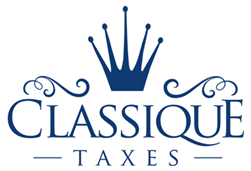As of last week, the Internal Revenue Service (IRS) has taken decisive action to address concerns regarding the improper filing of Employee Retention Credit (ERC) claims, announcing a moratorium on new claims through at least the end of the year. This decision is aimed at protecting unsuspecting tax businesses from falling prey to scams that are orchestrated by aggressive promoters of the credit; these egregious marketers have been targeting ineligible applicants, who risk paying the credit back on top of interest and penalties.
What is the ERC?
The ERC is a legitimate pandemic-era tax credit designed to support businesses that continued to pay employees during the COVID-19 pandemic while facing operational suspensions or significant declines in gross receipts. The program is not available to individuals.
To be eligible for the ERC, employers must meet extremely specific requirements, including sustaining a suspension of operations due to government orders, experiencing significant declines in gross receipts, or qualifying as a recovery start-up business during specified periods.
The Employee Retention Credit is notoriously complex, and its esoteric qualifications affect multiple government agencies; with this high level of intricacy, and now the potential risk of being scammed, many legitimate businesses are now hesitant to claim the credit, or potentially even try.
How are businesses being scammed?
The moratorium, ordered by IRS Commissioner Danny Werfel, comes in response to increasing evidence of ineligible and potentially fraudulent claims entering the system. The IRS had previously intensified its focus on reviewing ERC claims for compliance concerns, including escalating audit efforts and criminal investigations into promoters that filed suspicious claims.
However, as of July 31, 2023, the IRS-CI initiated 252 investigations involving over $2.8 billion of potentially fraudulent ERC claims, resulting in federal charges for fifteen of these cases. Six matters have led to convictions, with an average sentence of 21 months. These efforts are part of the IRS’s broader strategy to address COVID-related fraud, totaling over $8 billion in suspected pandemic fraud.
To avoid fraudulent efforts in relation to the ERC, businesses should remain cautious about aggressive marketing tactics that promote risk-free ERC submissions. The IRS has identified several warning signs, such as unsolicited calls or advertisements offering an “easy application process” and promoters claiming they can quickly determine eligibility. Furthermore, large fees up-front and fees based on a percentage of the ERC refund are also red flags.
For businesses, there are significant risks associated with improper claims, including the potential repayment of credits along with penalties and interest. To protect against questionable claims and potential scams, businesses should collaborate with trusted tax professionals who understand the complex rules associated with the ERC. Additionally, the IRS has released tools to help determine ERC eligibility, including an FAQ page and a question-and-answer guide. If a business suspects a scamming attempt, Form 14242 can be used to report suspicious or abusive tax promotions.
What should businesses know about the moratorium?
For those who have already filed to claim the credit, payouts for legitimate ERC claims will continue during the moratorium period at a slower pace. The processing time for existing ERC claims will extend from the standard 90 days to 180 days or more, depending on the level of compliance review required. The IRS may also request additional documentation from taxpayers to verify the legitimacy of their claims.
Our Chief Revenue Officer at Drake, John Sapp, CPA, puts it this way: “IRS is slowing down the ERC payment process to circumvent fraud. Similar to when police setup a random ‘license checkpoint’ – it slows down traffic but may keep unlawful drivers from getting on the road.”
Additionally, the IRS is developing new initiatives to assist businesses victimized by these aggressive scammers, including a settlement program for reimbursement of improper ERC payments. Likewise, a specialized option to withdraw claims will be made available for those who have filed unprocessed ERC claims. Ideally, this functionality will help businesses avoid repayment issues and the payment of contingency fees to promoters. However, it’s important to note that individuals who have filed fraudulent claims may still face criminal investigation and prosecution if they choose to withdraw.
In its broader compliance efforts, the IRS is collaborating with the Department of Justice to combat ERC fraud and take action against marketers disregarding the program’s rules. Auditors with specialized training are examining ERC claims with the highest risk of noncompliance, while the IRS Criminal Investigation division actively identifies promoters of fraudulent claims for potential referral to the Department of Justice.
Overall, the IRS has recently taken measures to address concerns regarding improper ERC claims and protect businesses from fraudulent schemes. The IRS efforts through the moratorium on new claims, enhanced compliance reviews, and collaboration with the Department of Justice seek to uphold the ERC program and prevent abuse, ideally empowering eligible and legitimate businesses to claim the credit without fear of being exploited or reaping financial repercussions. As a tax professional, you can advise and guide your clients to exercise caution when dealing with belligerent promoters and take necessary next steps if they are implicated in fraudulent activity.
Sources:
Employee Retention Credit Eligibility Checklist: Help understanding this complex credit

